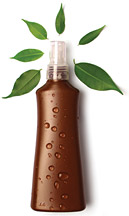To Your Health
June, 2009 (Vol. 03, Issue 06) |
|
|
Does Sunscreen Help?
Seeking a statistical measurement of sunscreen's benefit yields a great surprise: It doesn't appear to work. In 1999, Martin Weinstock published the results of a meta-analysis of 13 epidemiological studies on the relation of sunscreen use to melanoma risk.
Three studies showed a decreased risk of melanoma, but four showed an
increased risk and six were inconclusive. A 2002 review published in the
British Journal of Dermatology yielded
no more assurance that sunscreen is protective. To quote the authors' abstract: "Two case-control studies show a protective effect of sunscreen use, while three studies showed a significant risk associated with sunscreen use." They found excuses to explain away the results that suggested sunscreen use increased risk.
A 2007 study in the Annals of Epidemiology tells us something else we would prefer not to read. Data from 17 different studies on sunscreen use were analyzed based on the latitude at which they were conducted. Of these, 10 studies were conducted at latitudes >40 degrees from the equator and seven at < 40 degrees. When all the data were combined together, no protective effect was seen against skin cancer.
Analyzing the data based on latitude yielded another disturbing result. In studies conducted at latitudes more than 40 degrees from the equator, sunscreen useactually increased risk. The odds ratio of getting skin cancer increased to 1.6 times the normal rate. In simpler words, people were about one and a half times as likely to get cancer. Below 40 degrees latitude, sunscreen use lowered skin cancer risk ratio, but only slightly.
Does Sunscreen Harm?
 Even if sunscreen doesn't protect against skin cancer, why would it increase risk? The explanation is simple. Most chemical sunscreens block ultraviolet B (UVB), but are transparent to ultraviolet A (UVA). More than 90 percent of the ultraviolet light from the sun is UVA. Sunscreens work very well to prevent your skin from getting red or sunburned. They allow us to stay out in the sun much longer than we would if we were getting burnt. As a result, the skin ends up more damaged than if we hadn't used sunscreen.
Even if sunscreen doesn't protect against skin cancer, why would it increase risk? The explanation is simple. Most chemical sunscreens block ultraviolet B (UVB), but are transparent to ultraviolet A (UVA). More than 90 percent of the ultraviolet light from the sun is UVA. Sunscreens work very well to prevent your skin from getting red or sunburned. They allow us to stay out in the sun much longer than we would if we were getting burnt. As a result, the skin ends up more damaged than if we hadn't used sunscreen.
The complete explanation may actually be a bit more complex. Kerry Hanson at the University of California exposed human skin samples grown in the lab to UV radiation while supposedly protected with the chemicals commonly used in sunscreens. One hour later, each compound had soaked into the skin, reducing its protective effect. This finding gave rise to the news reports suggesting that you need to reapply sunscreen every two hours. But these news stories missed the important part of the research: The skin samples that were supposedly protected by sunscreen contained more reactive oxygen species (ROS) than skin with no sunscreen on it (presumably caused by the exposure to UV radiation). ROS are free radicals that damage skin cells and increase the risk of skin cancer.

